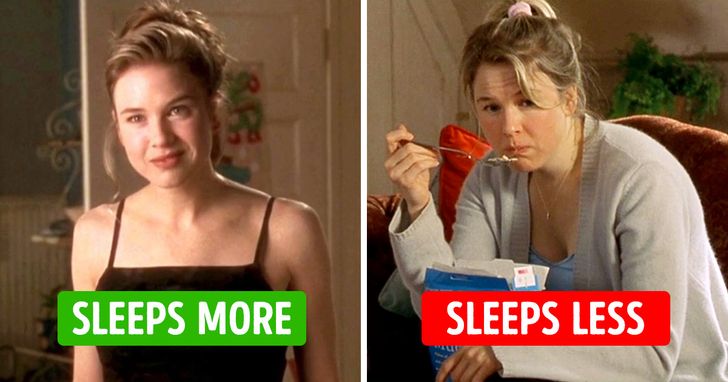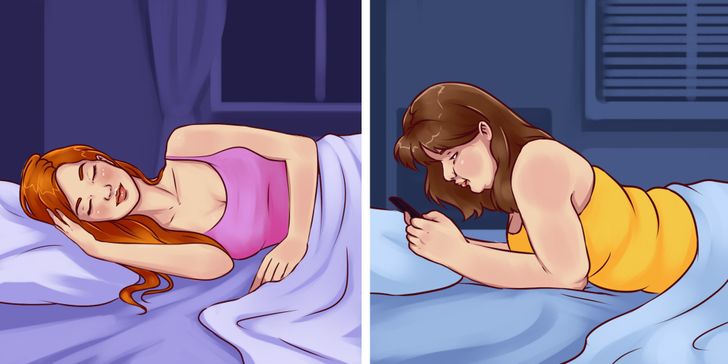If you have gained a little weight in the last 2 weeks, monitor your sleeping habits. Poor sleep at night can affect your performance the next day in a number of ways, but a 2016 study linked poor sleep to weight gain. This is what to keep in mind if you want to maintain your figure or help your diet work much better.
We want to raise awareness about this problem so that you can take care of your sleeping habits and your body.
Why Is Sleep So Important to Weight Loss?

If you sleep less than the recommended hours, depending on your age, this can negatively affect you the next day in several ways, such as lowering your productivity levels, lowering your energy, making you angry, and even predisposing you to argue with others, especially your partner.
And now we have to add possible weight gain to the top of that list. Research conducted by King’s College London and Vrije University Amsterdam in 2016 found that partial sleep deprivation is associated with consuming more calories the next day.

The research looked at 11 studies that examined the link between lack of sleep and weight gain. They included a total of 172 participants. In all of them, some participants were deprived of sleep for up to 2 weeks and others were not.
After that time, your calorie intake was counted. Across the 11 studies, most sleep-deprived participants consumed an average of 385 calories more than those who were not sleep-deprived.
Although these were studies that looked at the results of lack of sleep over a 2-week period, scientists believe that, if prolonged, the effect and calories may increase.
The participants also chose different foods to eat than on their “good sleep” days, most often in the form of fatty foods. They also ate less protein-rich foods. Interestingly, the number of carbohydrates they consumed was roughly the same.
Do you know what also stayed the same? Your activity levels. This means that if we don’t get enough sleep and then eat extra calories without burning more, we gain weight. It is simple math.

Researchers believe that, as one study suggests, lack of sleep interferes with the hormones of hunger and satiety. However, other research suggests that it can also alter the area of our brain associated with motivation and reward, so after a bad night and with less energy, we just want tasty and instantly rewarding food and not the stress to look for it or prep it. But the consequences of a bad night’s sleep are not done there.

Another study found that if people did not get enough sleep, the next day they chose foods that were different from what they usually eat, and for the most part, they chose fatty foods.
When people eat fatty foods like hamburgers and fried chicken, they have more trouble falling asleep and getting a good night’s sleep, which in turn causes them to select fatty foods, adding extra calories.
This will again affect your rest and create an unhealthy sleep cycle, which is where unhealthy eating begins.

Not getting enough rest can lead to an unhealthy cycle, so be careful not to slip into it. How do you think lack of sleep affects you personally? Do you have any tips to improve your community’s sleep habits? Give your opinion in the comments section!


